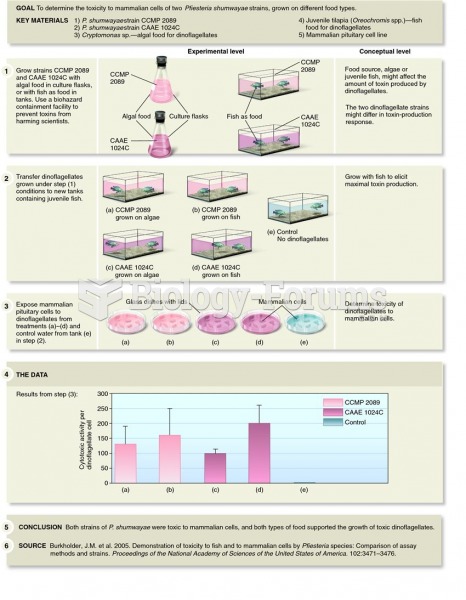|
|
|
About 100 new prescription or over-the-counter drugs come into the U.S. market every year.
In women, pharmacodynamic differences include increased sensitivity to (and increased effectiveness of) beta-blockers, opioids, selective serotonin reuptake inhibitors, and typical antipsychotics.
Cocaine was isolated in 1860 and first used as a local anesthetic in 1884. Its first clinical use was by Sigmund Freud to wean a patient from morphine addiction. The fictional character Sherlock Holmes was supposed to be addicted to cocaine by injection.
About 3% of all pregnant women will give birth to twins, which is an increase in rate of nearly 60% since the early 1980s.
Patients who have undergone chemotherapy for the treatment of cancer often complain of a lack of mental focus; memory loss; and a general diminution in abilities such as multitasking, attention span, and general mental agility.
 Burkholder and colleagues demonstrated that some strains of Pfiesteria shumwayae are toxic to fish a
Burkholder and colleagues demonstrated that some strains of Pfiesteria shumwayae are toxic to fish a
 Jens Roland and colleagues marked (notice the QME on the wing) and recaptured many Rocky Mountain Pa
Jens Roland and colleagues marked (notice the QME on the wing) and recaptured many Rocky Mountain Pa





